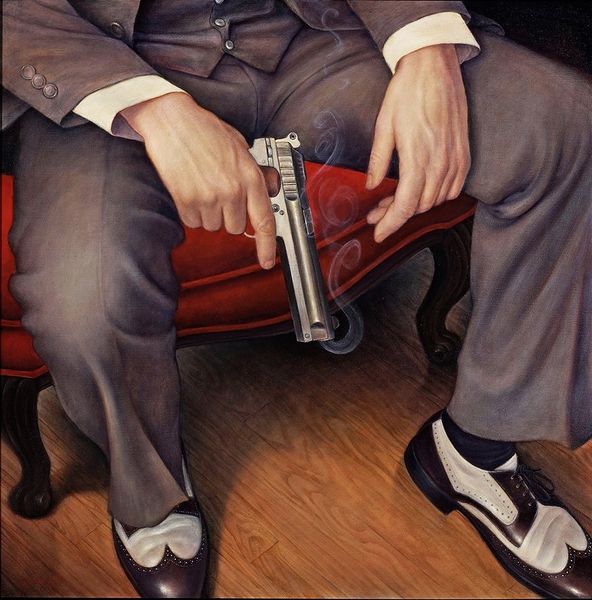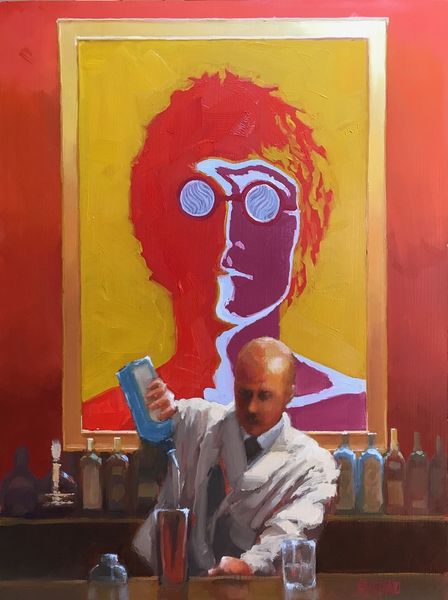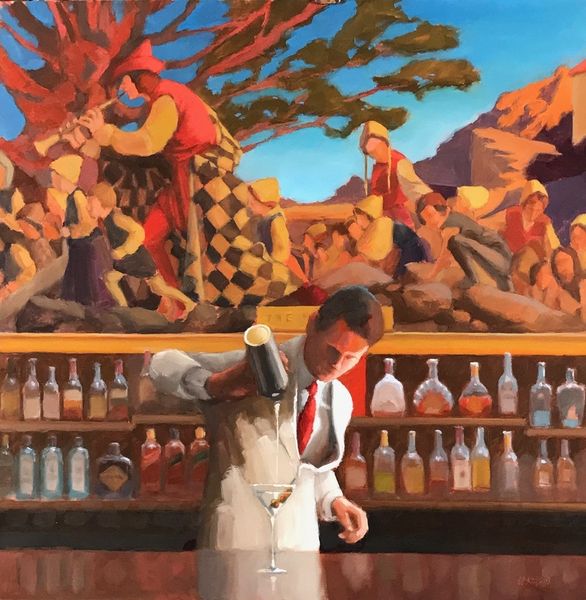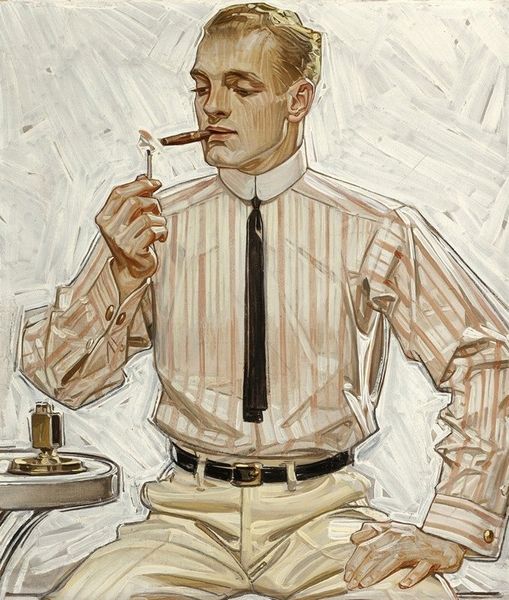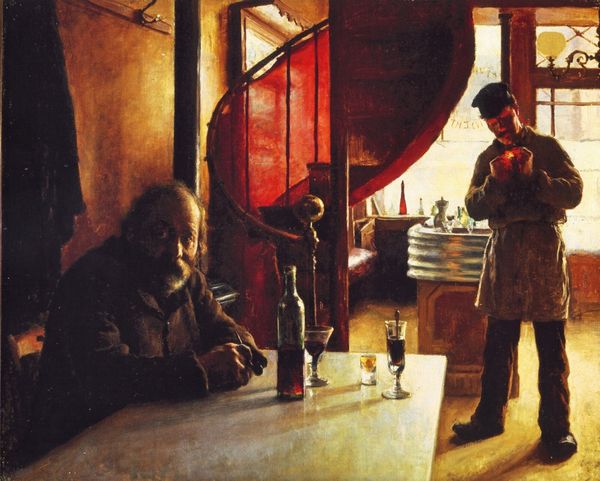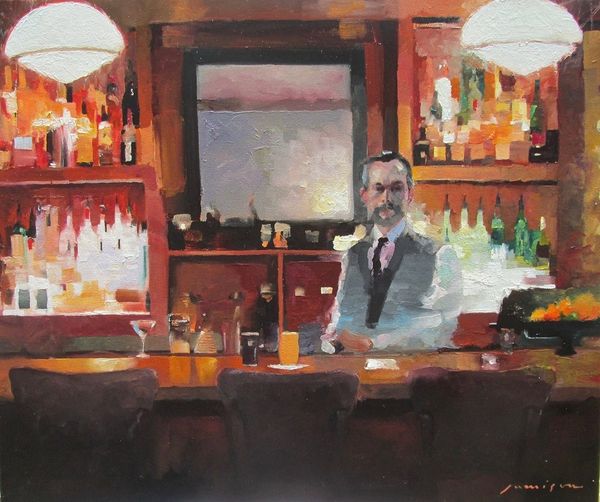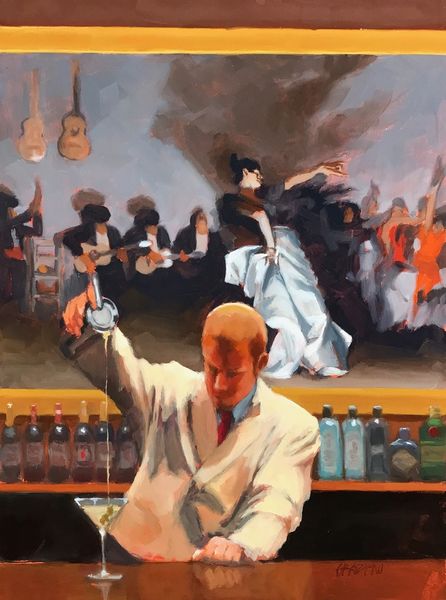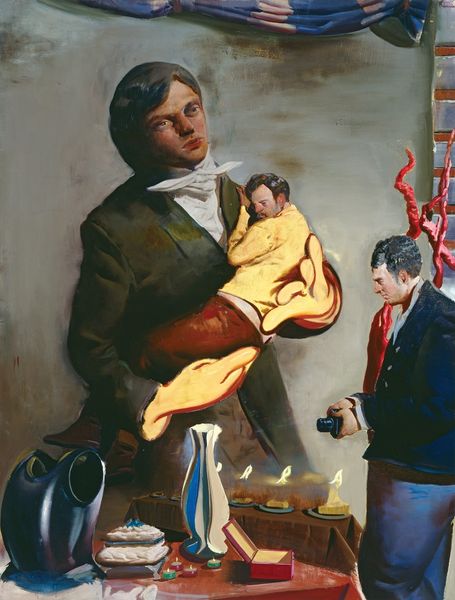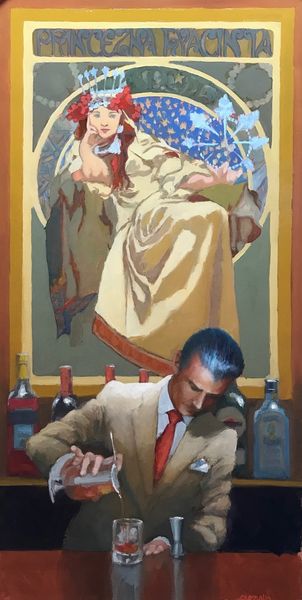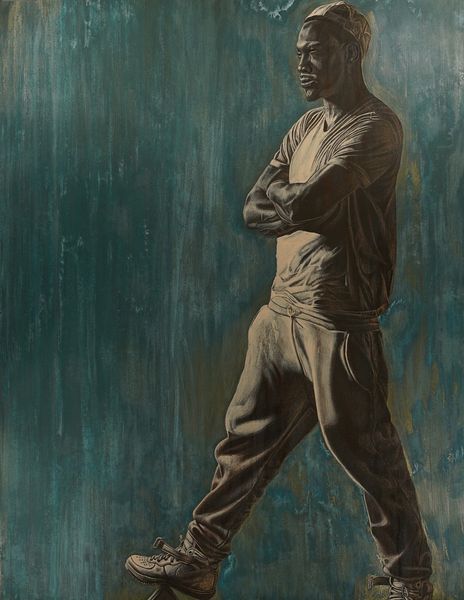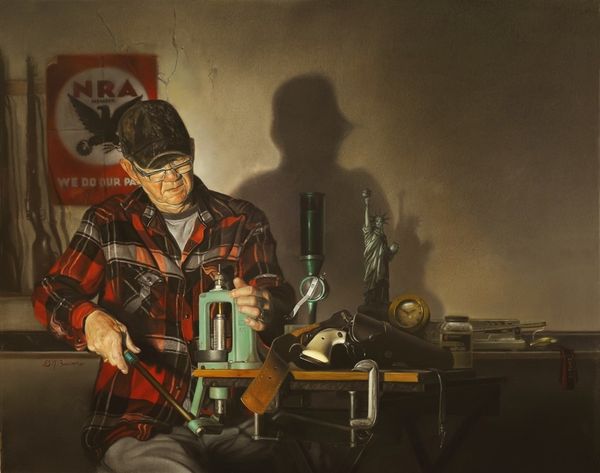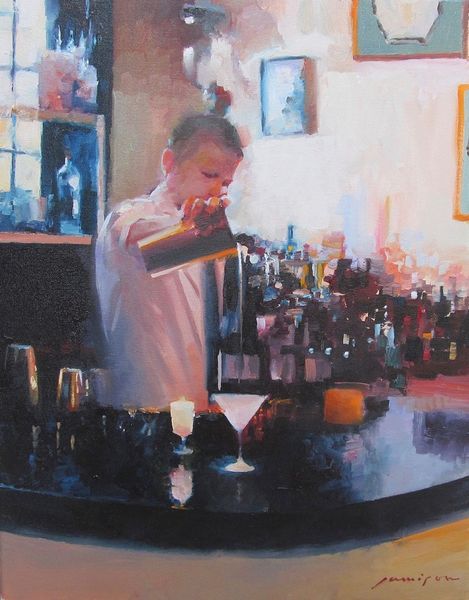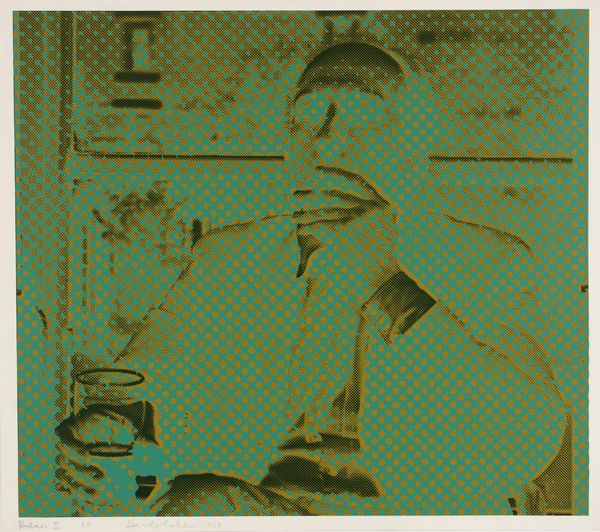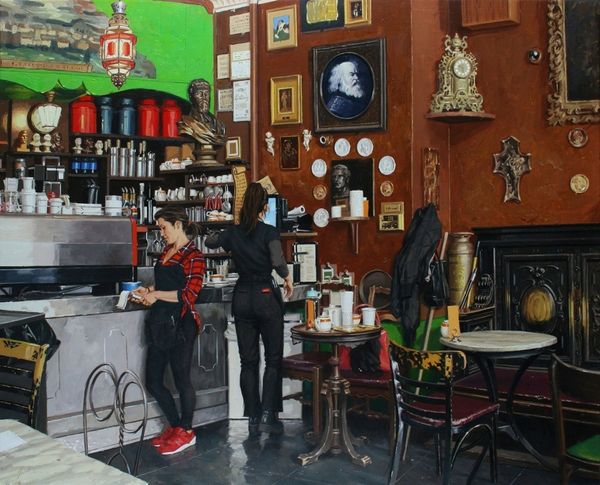
painting, oil-paint
#
portrait
#
photorealism
#
painting
#
oil-paint
#
oil painting
#
genre-painting
#
modernism
#
realism
Copyright: Modern Artists: Artvee
Curator: Oh, there’s a quiet thoughtfulness here. A sense of hushed concentration. Editor: Yes, Norman Rockwell crafted this oil painting, "Study for The Pharmacist, Upjohn; Pharmaceuticals advertisement," back in 1955. The pharmacist's caught in a moment of careful measuring. The mid-century realism practically drips off the canvas, don't you think? Curator: Absolutely. It reminds me of those old Saturday Evening Post covers—so iconic, but with an almost melancholic undertone. The light, it feels both bright and a little clinical. It's the everyday, but rendered with such care, such almost sacred precision, you know? Like a Vermeer, but set in a drugstore. Editor: Rockwell's images became synonymous with a specific American ideal—often critiqued for their nostalgic and idealistic depictions, but in this one, there's a tangible tension. A subtle commentary about healthcare, pharmaceutical advertising, and perhaps the role of the "everyman" in this world. Who profits from these industries? Who benefits? Curator: I never really considered Rockwell political, per se. More an observer of humanity, warts and all, albeit with a rose-tinted brush. But, you know, there’s this yearning baked in. Like, can this pill actually fix us? Are we really this wholesome, this "normal"? It’s fascinating that this was an advertisement, after all. Editor: Right? It's a promotion couched in comforting imagery—evoking trust in institutions and medical authority. But at what cost? Thinking about unequal access to healthcare, about marginalized communities often overlooked, suddenly this kindly pharmacist becomes something of a symbol of the establishment. Curator: I suppose. Maybe it’s more unsettling now precisely because of the way we question everything, or are prompted to. Before it might have just looked like, ‘Oh, isn’t that nice?’ Editor: Context changes everything. And even Rockwell’s intent gets filtered through decades of shifting social perspectives and activism. Curator: So much to consider. Even a "simple" pharmacist portrait becomes a mirror reflecting us back on ourselves. Editor: Exactly. That is, to me, what is worth spending time thinking about.
Comments
No comments
Be the first to comment and join the conversation on the ultimate creative platform.
